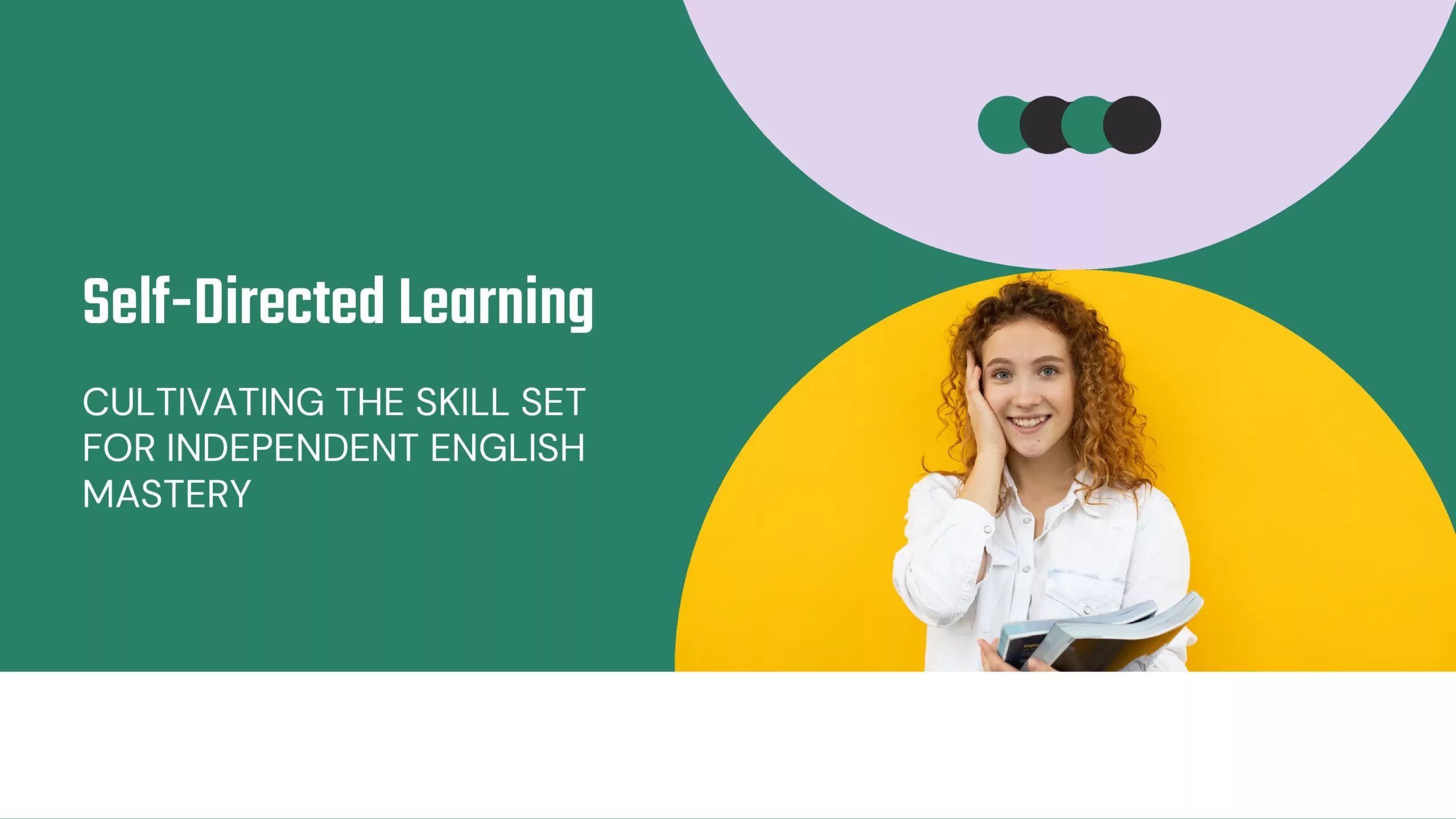Learning a new language is akin to embarking on a thrilling journey, one filled with challenges, discoveries, and profound growth. It’s a path that involves the exploration of not just a set of new words and grammar rules, but also an entirely different culture, perspective, and way of thinking.
English, known as the ‘lingua franca’ of the modern world, is no exception. With its extensive reach and profound influence, learning English propels you into a world of unprecedented opportunities, bridging the gap between diverse cultures and fostering global communication.
However, the journey to mastering English doesn’t have to always be under the guidance of a tutor. Self-directed learning is a potent and often underutilized tool in language acquisition. It fosters a sense of independence, responsibility, and a deeper understanding of the language as learners take control of their educational journey.
Understanding the Basics of English Language

To begin your independent English learning journey, you’ll need to start with the basics: the alphabet, vocabulary, and simple grammar rules. The English alphabet consists of 26 letters, each having an uppercase and lowercase version. Familiarity with these letters and their sounds forms the foundation of your English language study. In addition, building a robust vocabulary is key. Start by learning common words and their meanings, and gradually expand your vocabulary by including more complex words.
English grammar, although complex, can be mastered with persistent and consistent effort. Start with simple sentence structures and understand the use of basic grammar elements like nouns, verbs, adjectives, and adverbs. Then, move on to more complex grammar structures and tenses. There are numerous online resources, applications, and books available to help you understand and practice English grammar.
Finally, practice is crucial in language learning. Regularly listening to English through music, podcasts, or movies can greatly improve your understanding and pronunciation. Regularly reading English books, articles, or news can enhance your vocabulary and comprehension. Furthermore, try to practice speaking and writing in English as much as possible. This can be done through language exchange platforms or by keeping a daily journal in English. Remember, consistency is key in language learning.
Importance of English in the Global Landscape

The ubiquity of English in the global landscape is undeniable. As a dominant language of business, technology, and academia, English permeates various aspects of our lives. It serves as a common thread linking diverse cultures, communities, and countries, facilitating international communication and cooperation. Learning English isn’t merely about mastering a language; it’s about accessing a global platform, brimming with opportunities for career advancement, cultural exchange, and intellectual growth.
Moreover, the importance of English extends to the digital sphere, which has a significant impact on our contemporary lives. The majority of content on the internet, from academic resources to entertainment, is in English. By learning English, you are unlocking a vast reservoir of knowledge and information, enhancing your digital literacy and paving the way for a deeper understanding of global trends and developments. Furthermore, English proficiency allows for more significant interaction and engagement online, enabling one to partake in global discussions, connect with a broader range of individuals, and expand their perspective.
Finally, the role of English in the global landscape shapes international relations and diplomacy. English is the official language of various global organizations, including the United Nations, NATO, and the World Trade Organization, emphasizing its influence in international policy-making and discourse. As more and more countries recognize English as a second language, the importance of learning English increases. In an increasingly interconnected world, a strong command of English is a valuable asset that can open doors of opportunities, foster mutual understanding, and promote global harmony.
The Philosophy of Self-Directed Learning

At its core, self-directed learning is about taking control of your education and forging your own path. This philosophy encourages learners to be active participants, rather than passive recipients, in the educational process. Learners are motivated to set their own learning goals, determine the resources they need, and evaluate their progress. They are encouraged to seek out knowledge independently, fostering a sense of curiosity and a desire for lifelong learning. This approach is particularly applicable in language learning, where constant exploration and practice can yield significant benefits.
Self-directed learning also fosters a deeper sense of understanding and retention. As learners actively seek out and engage with educational content, they are more likely to comprehend and remember the information. This is attributed to the active involvement in the learning process, which enhances cognitive engagement and encourages the application of learned concepts. In the context of language learning, this could mean more effective vocabulary absorption, better grammar understanding, and improved language skills.
However, self-directed learning is not without its challenges. It requires discipline, motivation, and a willingness to persevere in the face of difficulties. It also necessitates the ability to reflect on one’s learning process and adjust strategies as needed. Despite these challenges, the rewards of self-directed learning are substantial. With the right mindset and strategies, learners can harness their natural curiosity and drive to master new skills effectively and efficiently, gaining a sense of satisfaction and confidence in their abilities.
Strategies for Independent English Learning

One of the most effective strategies for independent English learning is to incorporate the language into your daily routine. This can be achieved by switching your phone or computer settings to English, listening to English music, watching English TV shows or movies, or reading English books. By consistently engaging with English in your everyday life, you can learn the language in a natural context, which can make the learning process more enjoyable and less daunting.
Also, language exchange platforms can be a valuable resource. These platforms allow you to connect with English speakers who are learning your native language. This arrangement can be beneficial for both parties as you can practice speaking English and learn about different cultures while helping someone else learn your language. Remember, speaking is often the most challenging skill to master in any language as it involves instant processing and producing of the language. Thus, regular speaking practice is crucial for improving pronunciation, fluency, and confidence in speaking English.
Finally, the use of technology can greatly enhance the language learning process. There are numerous English learning apps, websites, and online courses available that cater to different learning styles and levels. These resources often include interactive elements, like games and quizzes, which can make learning more engaging. Furthermore, many of these resources are designed to adapt to your progress, providing personalized learning experiences. This means you can learn at your own pace, focusing on areas where you need improvement, and spend less time on topics you’ve already mastered.
Tools and Resources for Self-Learning English

There is a diverse array of tools and resources available for individuals keen on self-learning English. Traditional resources such as textbooks still hold considerable value for their structured approach and comprehensive coverage of grammar and vocabulary. However, it is essential to complement these with more interactive and dynamic resources to ensure a balanced and engaging learning experience.
Online platforms like Duolingo, Babbel, and Rosetta Stone offer interactive language learning experiences tailored to the learner’s needs. They use gamification to make learning fun and engaging, offering rewards and badges to maintain motivation levels. Podcasts and language learning websites, such as BBC Learning English, also provide a wealth of resources, from grammar lessons to listening exercises, catering to learners at different proficiency levels.
Social media platforms can also be a valuable resource, with numerous English learning communities on platforms like Facebook and Reddit. These communities can act as support systems, encouraging you to share your struggles and achievements, ask questions, and get useful tips from fellow learners. Additionally, YouTube channels dedicated to English learning can provide visual and auditory aids, significantly benefiting those who learn best through visual or auditory cues. In conclusion, the key to effective self-learning is to utilize a mix of resources and methods, adjusting them based on your learning style and progress.
Developing a Routine for Self-Guided English Study

Establishing a routine for self-guided English study is instrumental in ensuring regular and consistent learning. A well-planned routine can help structure your study time, making your learning more effective and manageable. Start by setting aside dedicated time for English study each day. This time should be free from distractions and conducive to focus and concentration. The duration of study time can vary based on your personal schedule and learning needs, but consistency is key. Even short, daily study sessions can lead to significant progress over time.
The routine should also incorporate a variety of activities to keep the learning process dynamic and engaging. You may start with grammar exercises, move on to vocabulary expansion, then practice listening skills through English podcasts or videos, and finally, improve speaking and pronunciation through language exchange or speaking practice. Balancing different aspects of language learning in your routine can help ensure a well-rounded mastery of English.
Finally, remember to factor in time for review and self-assessment. Regularly revisiting previously learned material helps reinforce your memory and deepen your understanding. Self-assessment can be carried out through online quizzes and tests available on language learning platforms. These assessments can provide valuable feedback on your progress and areas of weakness, allowing you to adjust your learning strategies and focus areas accordingly. In summary, a structured study routine that incorporates diverse learning activities and regular review is a critical component of effective self-guided English learning.
Tackling Challenges in Self-Directed English Learning

Embarking on a self-directed English learning journey can present a host of challenges. One of the most common is maintaining consistent motivation. Without the structure and human interaction of a traditional classroom, it can be easy to lose momentum or feel discouraged. To overcome this, it’s vital to set clear, attainable goals and regularly celebrate your progress. Keeping a record of your achievements, however small they may seem, can help keep your motivation levels high.
Another notable challenge is the lack of feedback. In a classroom setting, teachers can promptly correct mistakes and provide constructive feedback. However, in self-learning, this instant feedback mechanism is often absent, making it challenging to identify and correct errors. Fortunately, many online platforms offer automated feedback, and language exchange platforms can also be a great way to receive feedback from native English speakers.
Lastly, the overwhelming abundance of resources can also pose a challenge. With countless books, websites, apps, and courses available, it can be difficult to know where to start or which resources are most effective. The key here is to explore different resources and identify those that best match your learning style and objectives. Remember, there’s no ‘one-size-fits-all’ approach to language learning. What matters most is that the resources you choose keep you engaged and help you progress towards your language learning goals.

